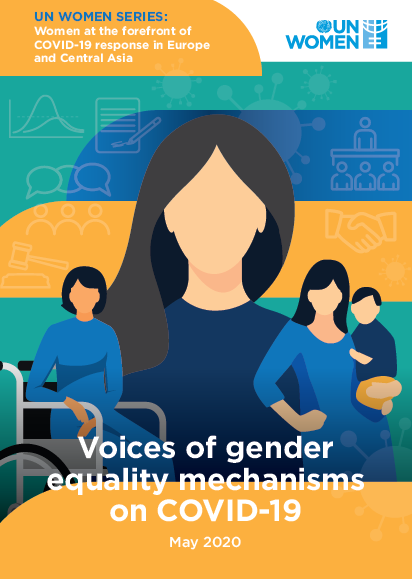
Voices of gender equality mechanisms on COVID-19

In May 2020, UN Women initiated online consultations with gender equality mechanisms from 14 countries (Albania, Azerbaijan, Bosnia and Herzegovina, Georgia, Kazakhstan, Kosovo[1], Kyrgyzstan, Moldova, Montenegro, North Macedonia, Serbia, Ukraine, Uzbekistan and Turkey) in the Western Balkans and Turkey, Eastern Partnership and Central Asia sub-regions to discuss challenges and priorities for the gender dimensions of the short- and long-term COVID-19 response. Gender equality mechanisms, also referred to as women’s machineries, are government institutions which serve as the central entity responsible for implementation and integration of gender equality measures across policies and programmes.
The consultations were attended by UN Women Executive Director Phumzile Mlambo-Ngcuka and UN Women Deputy Executive Director Åsa Regnér, who highlighted the need for concrete action to ensure that all policies and programmes regarding public health protection, preparedness, resilience and response take full account of women’s needs. Representatives of CSOs and youth network were provided with an opportunity to share their recommendations for partners too. This summary provides an overview of the discussions during two online meetings with gender equality mechanisms, including key issues raised, conclusions and recommendations.
[1] All references to Kosovo on this website shall be understood to be in full compliance with UN Security Council Resolution 1244 (1999).